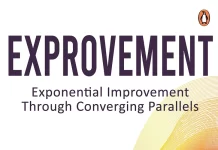Large scale distress among Indian farmers resulting in hundreds of them committing suicides each year is blamed primarily on their financial plight. A closer look into why they get into such a situation, Prof. Anil K. Gupta reveals in his book ‘Grassroots Innovation: Minds on the Margin are not Marginal Minds’, is because they are not aware, or they have not been made aware of native and frugal solutions that already exist in India.
One such solution is the use of herbicides or in the case of cotton crop, planting of ladies finger plants on the boundaries, can be used effectively to fight pests. Farmers spend a lot of money, borrowed from money lenders, to purchase chemical pesticides, which is one of the main reasons for their debt.
“There is nothing more tragic than to have somebody ending one’s life just because the public extension system and private actors would not share extremely affordable innovations. When an innovation is not only frugal but also sustainable, its lack of diffusion automatically indicates something fundamentally amiss in public policy and the world of public institutions.”
The central theme of Prof. Gupta’s book is this – how incorporating native knowledge into public policy, its large-scale awareness and implementation could save the country a lot of anguish and money. The challenge for a long time has been collation of such knowledge and disseminating them in an easy and effective way. To some extent that problem is being addressed by the Honey Bee Network, which he
co-founded in the 1990s.
Key insights
India has a huge number of largely knowledge rich but economically poor people. Late management guru C. K. Prahalad had said that ‘Indians may be poor, but they are not backward.” The paradox is that conventional on-farm research has been neglecting the farmers’ wisdom and had no place in institutional research planning.
He writes: “The entire literature on knowledge management seems to have missed the crux of the knowledge economy, i.e., how we reciprocate the generosity of those who share their ideas with us without much expectation of return. Should those who share such ideas remain poor or should they receive the benefits yielded through such communication? It is our belief in the network that a more symmetrical relationship between formal and informal sectors will eventually empower, enrich and inspire both.”
He says there are four teachers we can learn from – Teachers within, teachers among peers, the teacher in Nature and the teacher among common people. “These four teachers influence and help forge an open persona, of an individual who is willing to learn to from the community at large.”
India’s New Vision
Prof. Gupta urges Indian not to be “afraid of accepting unorthodox innovations.” This can happen only when research organizations are redesigned, governance systems restructured. The vision requires “building of bridges between the formal and informal systems of science, technology, manufacturing, services, agriculture, and rural and urban development.”
This book has a vast spread – includes rich insights about education, learning, about ethics, authenticity and much more. It is a must read for business executives who may be inspired to move out of their cabins and do the dirt rounds across the country. Who knows their next big product can come out an insight of a village boy.
The stories around ‘shodyatras’ is a treat. Students at the Indian Institute of Management Ahmedabad, who get to go for these walkathons, are the luckier lot. Other business schools should incorporate serious interaction with rural communities as part of their curriculum.
Although the book is an easy read, it could have been edited more tightly. The book could have done with fewer pages without losing any of its punch. The concept of frugal could have applied here as well.
Being a teacher, Prof. Gupta doesn’t let anyone go without listing key takeaways. The book ends with highly insightful takeaways – a treasure in itself.
Resources
techpedia.sristi.org
anilkgupta.com







